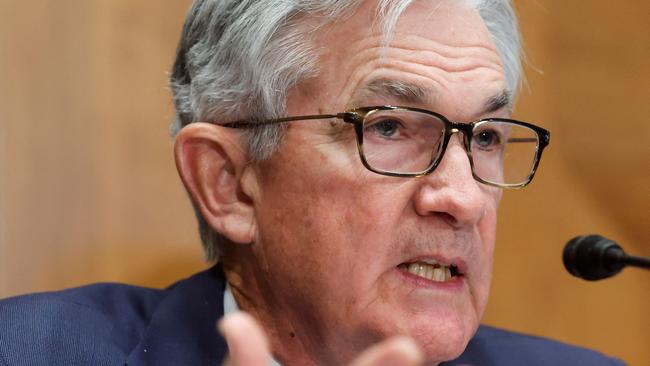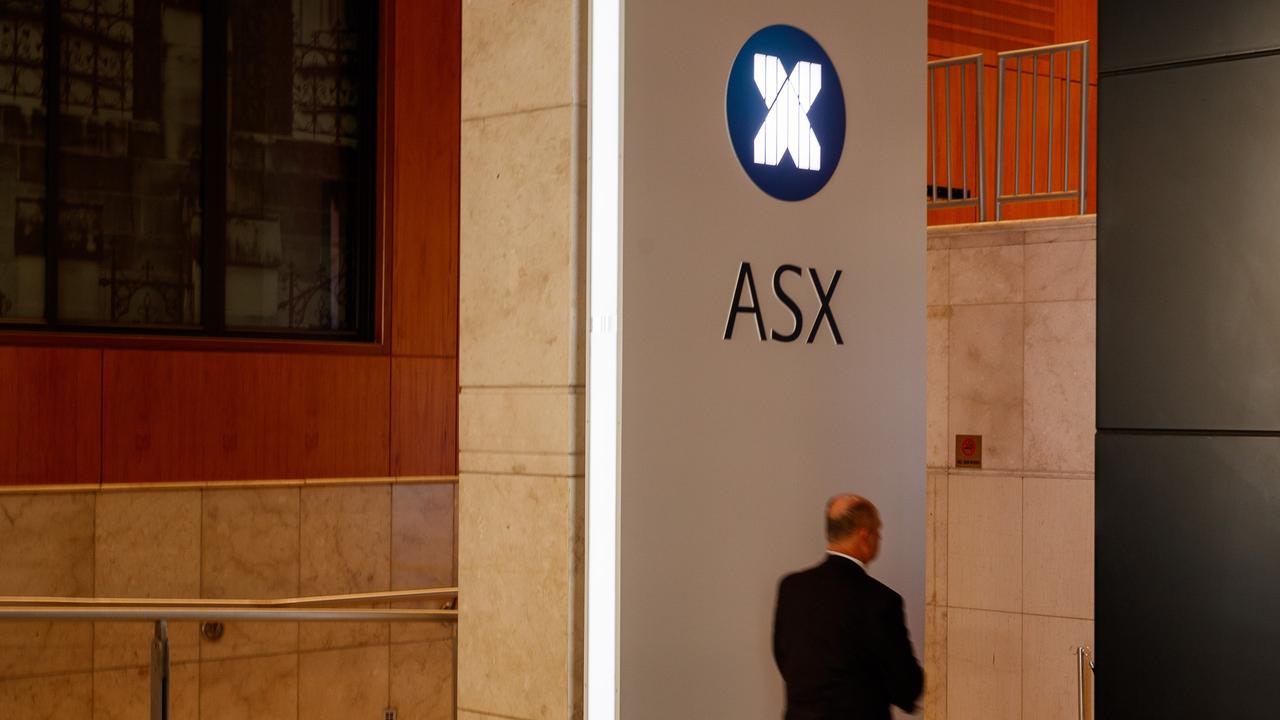US inflation hits 40-year high as the Fed eyes rate hikes
Soaring oil and food prices in the US have dashed hopes for an ease in the cost of living and all but guaranteed an interest rate hike next week.

US inflation reached a fresh 40 year high in February as soaring oil and food prices smashed earlier hopes of an ease in the cost of living after months of record price increases, all but guaranteeing US interest rates will rise next week.
American consumer prices rose 7.9 per cent over the year to February, including a 6.6 per cent increase in the price petrol in a single month, as Russia’s invasion of Ukraine triggered a surge in energy prices expected to supercharge inflation around the world for months.
“Americans’ budgets are being stretched by price increases and families are starting to feel the impacts of Putin’s price hike,” President Joe Biden said in a statement, seeking to deflect blame for a growing political headache for the White House and ruling Democrats.
US food prices rose 1 per cent over the month to February for a 7.9 per cent increase over the year, the largest 12 month rise since 1981, while rent, one of the largest components of the CPI, rose 0.6 per cent in February, the fastest monthly increase in 35 years.
“The Ukraine war will lead the Fed to start its tightening cycle with a conservative 25 bps rate hike in March,” said Kathy Bostjancic, chief US economist for Oxford Economics.
“The war adds further fuel to the blazing rate of inflation via higher energy, food, and core commodity prices that are turbo charged by a worsening in supply chain problems”.
Stripping out volatile food and energy items, the ‘core CPI’ rose 6.4 per cent over the year to February, the fastest pace for that index, since 1982.
The S&P500, the benchmark US stock index, fell in New York trading day on Thursday (Friday AEDT), while the yield on 10 year US government bonds briefly rose above 2 per cent for the first time since late February.
“There will be costs at home as we impose crippling sanctions in response to Putin’s unprovoked war, but Americans can know this: the costs we are imposing on Putin and his cronies are far more devastating than the costs we are facing,” Mr Biden said.
The February figures exclude the sharp rise in the global oil price in March to the highest level since 2008, as Russia’s invasion of Ukraine and the consequent international sanctions on Russia triggered a global scramble to shore up energy supplies, which will all but ensure inflation bursts through 8 per cent next month.
“The most recent post-invasion surge in agricultural crop prices means food prices are headed even higher in the near term,” said Paul Ashworth, chief US economist for Capital Economics.
“There were also signs of a post-Omicron surge, with hotel room rates rebounding by 2.2 per cent, airfares up 5.2 per cent and personal care prices up 1.2 per cent, the latter being the biggest monthly gain in that category on record”.
Economists expect the Federal Reserve to lift its official interest rate by 1.75 percentage points this year in total or as many as seven times (in 0.25 increments), which would be the quickest series interest rate increases since the mid 2000s.
“I do think it’s going to be appropriate for us to proceed along the lines we had in mind before the Ukraine invasion happened,” Federal Reserve Chairman Jerome Powell told a congressional hearing last week, playing down expectations the Fed would increase by 0.5 percentage points.
“In this very sensitive time at the moment, it’s important for us to be careful in the way we conduct policy simply because things are so uncertain and we don’t want to add to that uncertainty”
Separately, the European Central Bank, battling inflation of 5.1 per cent in the euro area over the year to January, announced an end to its bond buying program in the third quarter of the year, which will follow an end to the Federal Reserve’s equivalent program expected this month.
Inflation has increased sharply through the developed world, rising 5.5 per cent in the UK over the 12 months to January and 3.5 per cent in Australia throughout 2021, for instance.
Annual inflation in Russia accelerated to 9 per cent in late February, ahead of an expected surge in coming months following the collapse in the value of the rouble, which will see import prices soar.



